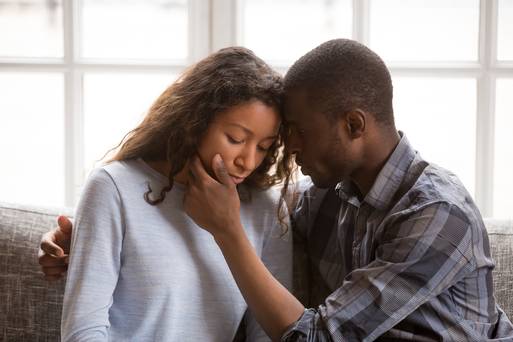
As a society, we are starting to acknowledge and talk about miscarriage and baby loss. There is a growing awareness of the psychological and physical trauma caused by such events, and women are starting to feel comfortable talking about it, and hearing about it – but only for so long. Society imposes a time limit on how long a woman can publicly grieve a miscarriage, but the psychic damage lingers.
I have written before about my experience with loss, and afterwards other women shared their stories of loss with me – some for publication, but some women just wanted to be heard. Some felt their losses, being in the first trimester, were not significant enough for others to read. But they are wrong.
There are women suffering grief and trauma years, often decades, after pregnancy loss at all stages of gestation. At the time I was reading these stories, I thought I would be different, that I would pick myself up and move on and that I wouldn’t give the whole ordeal a second thought two, three, five years on. But now I realise it isn’t a choice. Grief, trauma, whatever you want to call it, doesn’t look for your permission to visit.
My loss happened almost four years ago. A lot of good has happened since then – not least the joyous arrival of a baby who is now two years old, but even now, I still find myself waking up some mornings with that dark, oppressive, nihilistic feeling of grief. I know it is grief because I never felt that feeling before the loss. I have tried to fight it, I have chided myself for being so self-indulgent, I have tried to rationalise it away by counting all my blessings, but now I just do whatever I can to distract myself and wait for it to pass.
I also know that I, like some of the women who took part in the study, have unresolved trauma. Miscarriages are messy. I had to be induced to give birth as the baby was 19 weeks and it is something that even now, all these years later, my mind refuses to revisit. Early miscarriages too can be physically painful and traumatic, and can go on for days for some.
But it is the emotional scars that linger. Going from elation and hope at the thought of a new little baby to realising that the baby will never be, changes how you look at the world irrevocably. It undermines your faith in the idea that the universe is something that always rights itself. It is now a place where bad and arbitrary things can and do happen.
Andrea Corr, who has spoken publicly about her five miscarriages, described it perfectly when she talked about “hopes crashed”. For me, there was a large element of shame. I had failed in this most basic and natural of things. I had failed to sustain this baby that everyone was so excited to meet. I felt shame that there was something wrong with my body.
I was also ashamed that I was an object of pity, and a cautionary tale of the dangers of putting your career first and waiting too long to have your family.
What helped me was an amazing friend, who had lost her baby the year before, came to see me in hospital and held my hand through the darkest early days. What sustained me was reading the personal stories of other women who had been through similar and lived to tell the tale.
When I couldn’t imagine going back out into the world and carrying on, I drew on their experiences. I looked as far and wide as I could for stories of miscarriage and baby loss, and that helped me to normalise and contextualise my personal horror.
Because miscarriage is, as many a (hopefully) well-meaning doctor has told a devastated mother, a normal part of a woman’s reproductive life.
It is a fact of biology and it has its place in nature. But it is also a personal tragedy, and a loss, and a deep, deep disappointment. It is something to be addressed and tended to, not something to be dismissed.
And the more we talk about it, the easier it will be to heal.
Irish Independent
